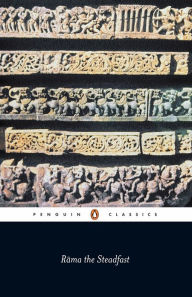Valmiki
Valmiki (/vɑːlˈmiːki/;[1] Sanskrit: वाल्मीकि, Vālmīki) is celebrated as the harbinger-poet in Sanskrit literature. The epic Ramayana, dated variously from 5th century BCE[2] to first century BCE,[3] is attributed to him, based o
... Read more
Valmiki (/vɑːlˈmiːki/;[1] Sanskrit: वाल्मीकि, Vālmīki) is celebrated as the harbinger-poet in Sanskrit literature. The epic Ramayana, dated variously from 5th century BCE[2] to first century BCE,[3] is attributed to him, based on the attribution in the text itself.[4] He is revered as Ādi Kavi, the first poet, author of Ramayana, the first epic poem.
Ramayana, originally written by Valmiki, consists of 24,000 shlokas and 7 cantos (kaṇḍas) including Uttara Kanda.[citation needed] Ramayana is composed of about 480,002 words, being a quarter of the length of the full text of the Mahabharata or about four times the length of the Iliad. The Ramayana tells the story of a prince, Rama of the city of Ayodhya in the Kingdom of Kosala, whose wife Sita is abducted by Ravana, the demon-king (Rakshasa) of Lanka. The Valmiki Ramayana is dated variously from 500 BCE to 100 BCE[5] or about co-eval with early versions of the Mahabharata.[6] As with many traditional epics, it has gone through a process of interpolations and redactions, making it impossible to date accurately.
Less

















